New Adventure Tourism Guidelines Issued by Indian Government
 Last Updated: 07 Mar, 2023 By SiteManager
Last Updated: 07 Mar, 2023 By SiteManager
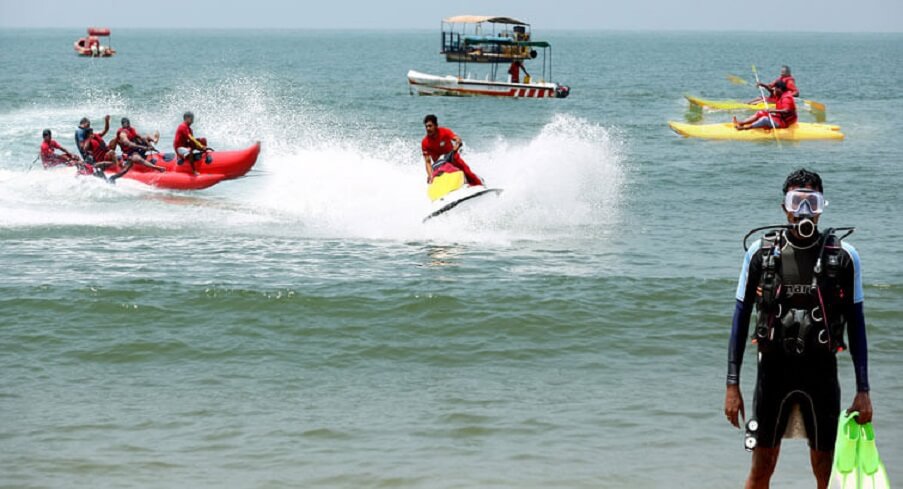
Adventure sports are definitely one of the most exciting and novel ways of spending an eternal holiday experience. In a country like India you get a chance to indulge into various adventure activities, whether of land, water or air, that actually give you some real thrill. Considering the buzz of adventure sports in India, the Indian government lately issued 29 guidelines in order to promote adventure tourism in India. These guidelines not only to promote tourism but also ensure a better safety and security of the clients participating in those sports.
Guidelines for Bungee Jumping in India:
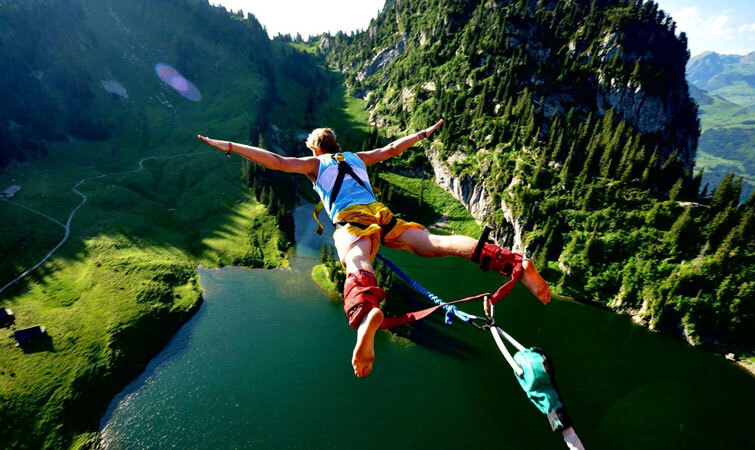
- As per the new guidelines imposed by the tourism minister, the jumpmaster should be professionally trained and must carry a vast experience in this activity. The same thing goes with the jump staff as well. They all should have an eye on every detail along with possessing a mature and calm attitude. Along with that, jump staff and jumpmasters are required to have a high level of physical fitness, excellent communication, self-discipline, and risk management skills.
- From now on, only the certified equipment will be used in Bungee Jumping that must have produced under a reputed company’s tag. Regular inspection and maintenance should be carried out by the center/institute.
- As per the new guidelines, the activity must be carried out on Australian and New Zealand standards. Also, the bungee jumping site must have SOPs for operations and rescue drill.
- The age to perform bungee jumping is 12-45 years.
- Bungee jumping centers/institutes are required to maintain all the necessary documents which must be presented at the site. These include; safety log, record of equipment, maintenance log, jump log, record of rubber, incident folder, staff training record, first aid kit record, medical record, and a dossier of jumpmaster.
- Safety briefing and audiovisual briefing should be given by the jumpmaster to the jumpers. Jumpmaster should also verify the medical condition of the jumpers, and thus, no compromise to be made in case of any medical problem. Along with that, signs of jumpers should be taken on both disclaimer and fitness certificate.
Guidelines for ATV Tourism in India:
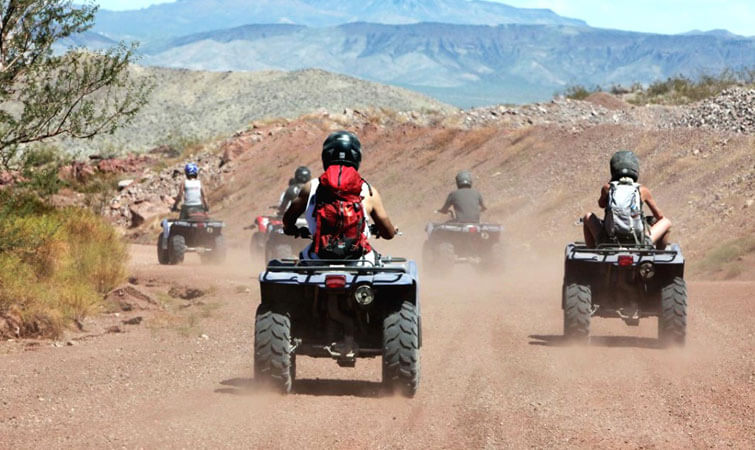
- All participant are required to undergo basic training course before the tour begins.
- ATV machines must be of a reputed brand and also received a regular maintenance.
- Riders must have to wear all the safety gears which include helmet, face shield or goggles, gloves, footwear, clothing.
- The agency must own ATVs and all the above-mentioned gears.
- For guides, it is recommended to carry spares and first aid kit.
- A detailed emergency procedure must be written which include contact number of the available emergency services.
Guidelines for Cycling Tourism in India:
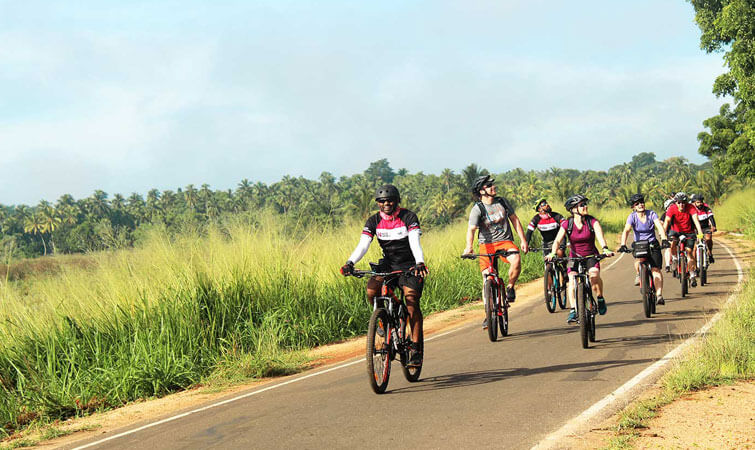
- Adventure guides must have a basic minimum qualification and the experience.
- For the bikers who prefer to bring their own cycle are required to carry all the necessary equipment and gears with them. However, in the other case, where the agency provides the bikes, the bikers should be delivered fully built and maintained bikes along with the gears.
- Agency should also categorise the biking itinerary along with the grades.
- Regular inspection and maintenance procedure should be carried out by the agency.
- Agency should maintain and update documents of all the gear, tour operator credentials, permits to enter a region, identity and emergency contact number of each client. These documents must be presented at the site.
- Before the tour, the agency should give a briefing about the rules and trails of mountain biking.
- Medical condition of the bikers should be verified in advance, and thus, no compromise to be made in case of any medical problem.
Guidelines for Camel Safari:
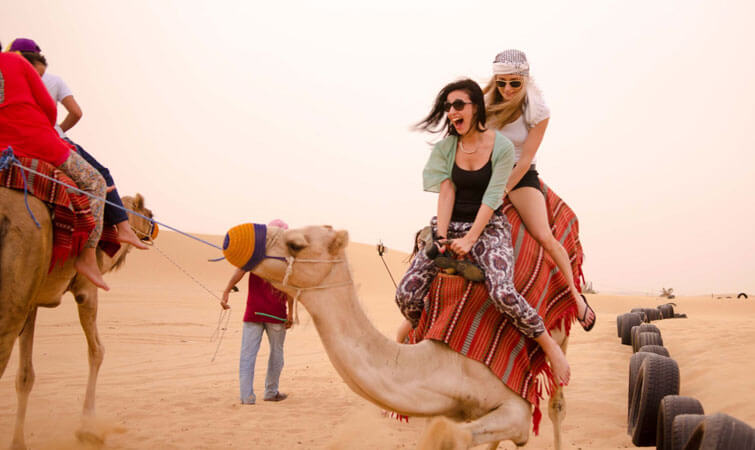
- Minimum qualification and experience is required for camel guides.
- Necessary equipment like binoculars, camera (optional), books and field guides about the desert and animals are must to carry.
- Camels must be treated good and looked after.
- The health of the camels must be monitored on a regular interval by the agency.
- Clients are required to sign the disclaimer before the camel safari.
- Safety precautions must be ensured by the operators for a safe camel safari.
- The expected weather condition must be briefed to the clients before commencing a camel safari tour.
Guidelines for Horse Safari:
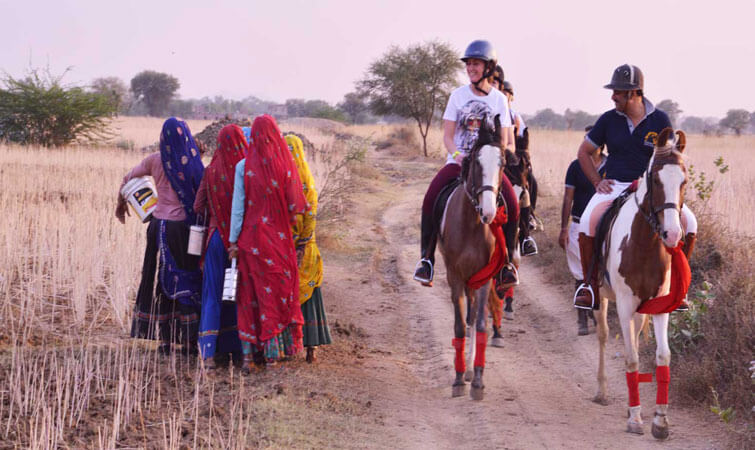
- The operator should ensure the proper safety of their clients on Horse safari tour.
- As per the guidelines, the Horse safari guides should have an advanced knowledge of horse riding and also of the terrains.
- Weather briefing should be conducted by the operator before commencing the safari tour.
- A horse should be owned by the service provider, and hence, must be given a proper care not only before the tour but during the tour as well.
- Quality check of riding equipment before the start of every season is must.
- All the necessary documents must be signed by all the riders.
- Required gears must be provided to the riders before they mount the horse. Helmet is must.
Guidelines for Jeep Safari and 4X4 Driving Safari:
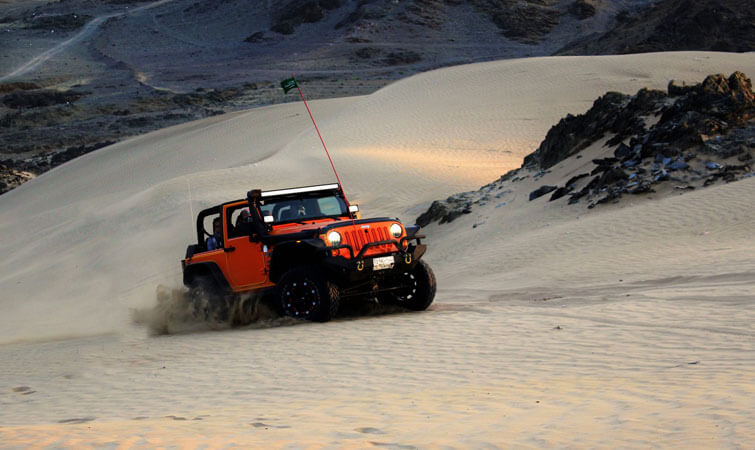
- All the drivers must have a valid driving licence. They must be experienced as well.
- Vehicles should be properly inspected before every safari and also a major inspection in every 3 months.
- Regular refresher courses for jeep safari drivers should be organized.
- First aid kit and fire extinguisher equipment should always be there in the vehicle.
- All the readers must have a knowledge of emergency evacuation procedure in case of an accident. They also should aware of the nearest medical facilities along the route.
Recommended Tours
Guidelines for Motorcycle Tour:
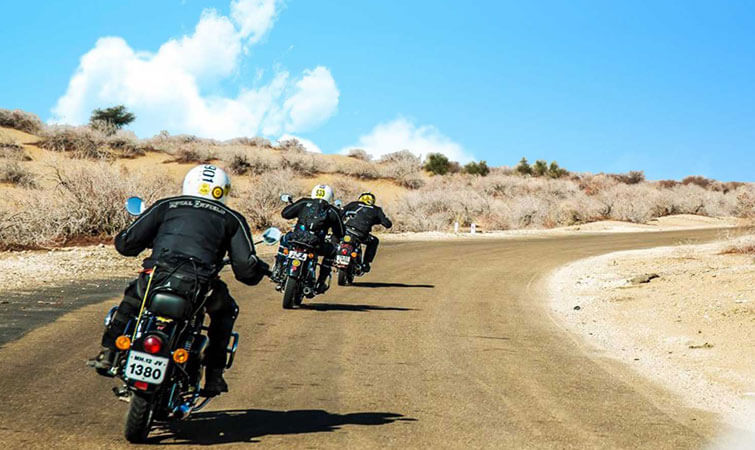
- Guide/instructor must have a minimum qualification and experience to carry a safe motorcycle tour.
- All the necessary equipment must be provided to all the riders. However, if the rider is bringing his own equipment then it is the responsibility of the guide to ascertain whether he has all the necessary equipment and gears or not.
- Operators must ensure that the vehicles should get a proper inspection and maintenance.
- Riders must also have a valid driving licence.
- There should be a safety briefing before commencing a motorcycle tour.
- Sufficient medical utilities should be carried on the tour.
Recommended Tours
Guidelines for Mountaineering in India:
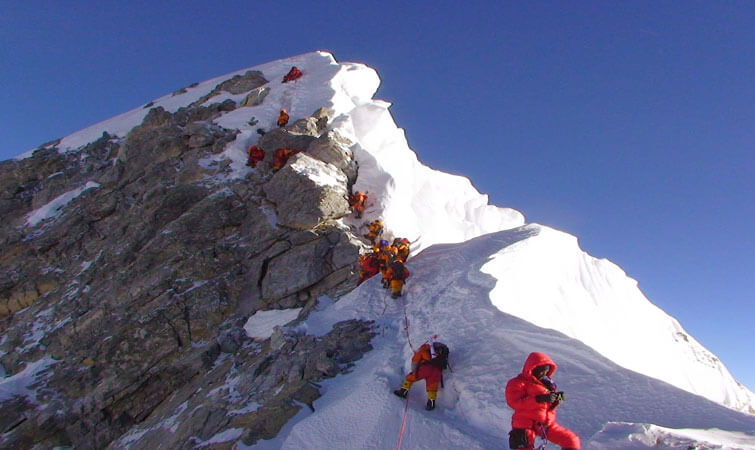
- The guides/instructors should have a minimum qualification and certification. Also, he/she should also have a certification of advanced mountaineering course from any of the National Mountaineering Academy that must have authenticated by IMF.
- There should be a proper maintenance of mountaineering equipment. A timely inspection of the equipment should also be conducted.
- Tour operator should maintain necessary documents. These include; details of all guides and instructors, permits and permissions, SOP, identification documents and insurance of all the participants, and more.
- Ascertain the medical record of the participants.
- There should be proper arrangement of emergency situations.
- There also should be first aid kits which include oximeters as a part of it.
- Guides/instructors must give a proper briefing to the participants before commencing the expedition.
Recommended Tours
Guidelines for Bird Watching Tourism:

- All the guides should have a basic minimum qualification.
- Bird watching tour should be well supported with all the necessary equipment.
- All the equipment must have a timely inspection and proper maintenance in order to make bird watching tour successful.
- Clients should be given a climate brief before setting off on a bird watching tour.
- All the safety measures should be taken on a tour.
- Operators are required to verify the medical condition of every participant, and thus, no compromise to be made in case of any medical problem.
- All the guidelines must be explained to clients beforehand.
Recommended Tours
Guidelines for Rock Climbing/Artificial Wall Climbing and Abseiling:
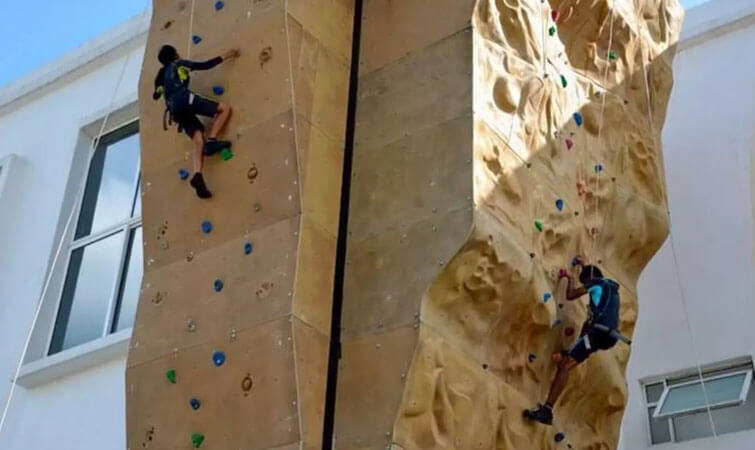
- Guides and instructors who are supervising the whole activity must have a basic minimum qualification.
- In order to conduct a safe climbing and abseiling, a proper care and maintenance should be given to all the equipment.
- Inspection and maintenance of the equipment should be carried out by a qualified person who must have a knowledge of the systems and equipment.
- Operators are required to maintain all the necessary documents of all the equipment and clients information.
- Safety briefing should be given to all the participants by guide or instructor before commencing the activity.
Guidelines for Personal Light Electric Vehicle Tours:
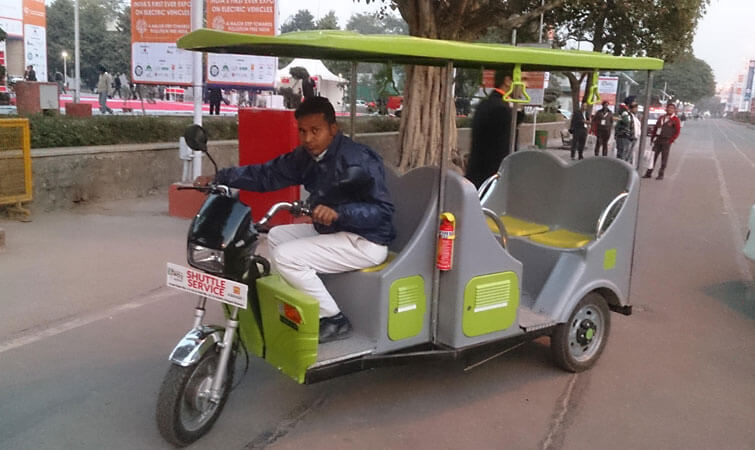
- Like all the land activities, personal light electric vehicle tours also requires qualified guides and instructors to conduct a safe tour.
- Timely inspection along with proper maintenance and care of vehicles.
- For tour operators, it is necessary to have all the required documents to organize an electric vehicle tour.
- These documents include; all permits, licences, contracts, insurances, safety audit record, and statutory documents.
- For guides, it is required to carry following documents on the tour; necessary certificate, certified logbook for guides and spotter, and first aid kit.
- As a rider, it is must to have certain documents to participate in the tour. These are; required signed application, medical certificate, insurance, instruction manual.
- Tour operators must have action plans and rescues if any accident or mishappening occurs.
- Safety briefing should be given to clients.
- It is also required for tour operators to ascertain the medical condition of the participant.
Guidelines for Skiing and Snowboarding:
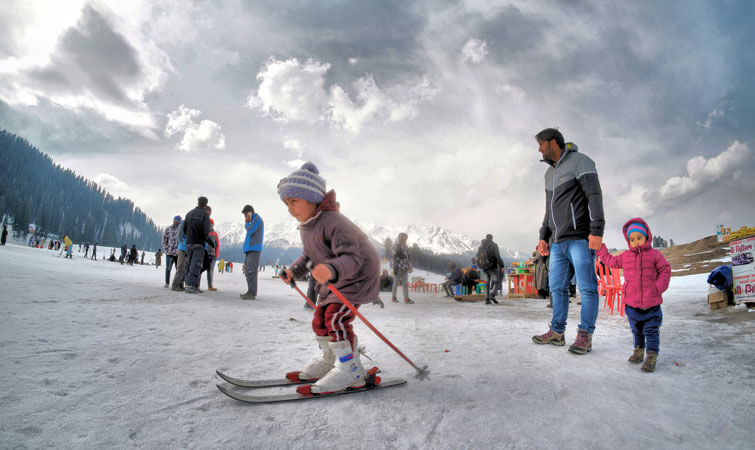
- All the tour operators must have qualified instructors and guides with a vast experience in this activity.
- Operators are also required to ensure that an instructor/student ratio should be small and manageable. One instructor should not be given more than 10 persons.
- Inspection of all the equipment should be carried out timely along with their regular maintenance.
- Safety briefing should be given to all participants whether beginner, intermediate and advanced skiers.
- All the participants must be physically fit to perform the activity. Operators must get a medical opinion from a qualified doctor clearing the participant for skiing and snowboarding.
- Guides and Instructors are also required to ascertain that all the safety gears must be worn by the participants.
Guidelines for Trekking & Hiking Tourism:
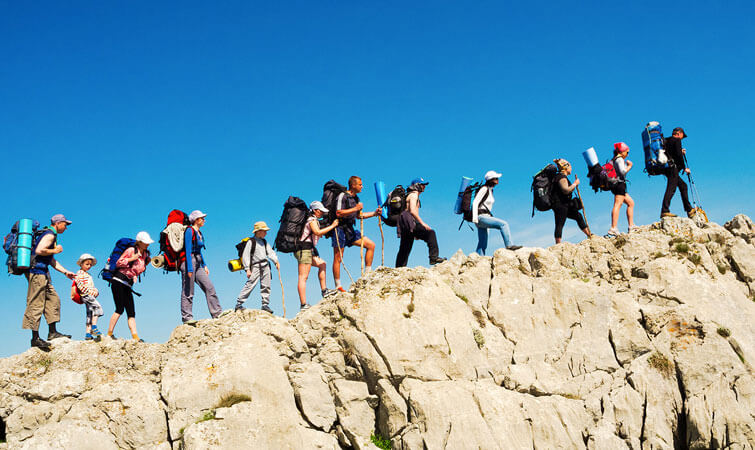
- Trekking expedition should also include qualified and experienced guides and instructors. Also, they should have a certificate issued by a MOT recognized adventure tour operator stating that the instructor has 3 years of experience.
- Inspection and maintenance of the equipment should be carried out by a qualified person having the knowledge of all the equipment.
- Tour operators are required to maintain various necessary documents which include; details of guides and instructors, copies of all permits and permissions, emergency contact numbers of all the participants, identification documents of participants, and emergency action plan.
- The medical condition of every participant should be verified by the operators and on the basis of that, you should be allowed to participate.
- Adequate first aid kits and medical equipment must be available with the operator during the trekking tour.
Guidelines for Wildlife Safari:
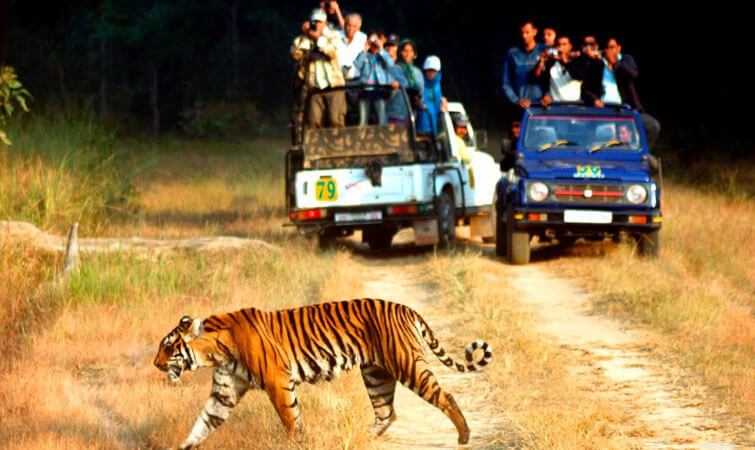
- Tour Guides should be experienced with minimum qualification. Moreover, they should be given regular training programmes to ensure a safe and secure wildlife tour.
- Wildlife organization should only include well-maintained equipment.
- Timely inspection and regular maintenance should be given to all the equipment including the jeep.
- Safety briefing should be conducted by the operators prior to the tour.
- All the required medication should be presented on the wildlife safari tour.
- All the guidelines should be commuted to all the clients beforehand.
Recommended Tours
Guidelines for Zip Wires and High Rope Courses:
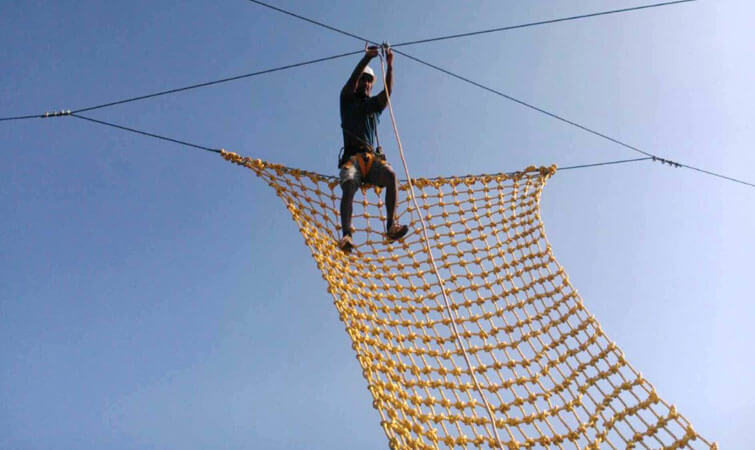
- Guides and instructors involved in zip wires and high rope courses should have a basic minimum knowledge and experience to successfully carrying out the activity. These guides must also aware of what to do if any emergency situation arises.
- Operators are also recommended to keep necessary documents onsite. These include; detail of all the participants, list of guides, instructors and other personnel, log book containing daily operational sheets, accident and incident report sheets, risk assessment and management plan, manufacturer’s product manual, current inspection report, and rescue and emergency plans.
- All the safety equipment must receive a proper care and attention along with timely inspection and maintenance.
- Participants should be given a safety briefing before commencing the activity.
Guidelines for Hot Air Balloon:
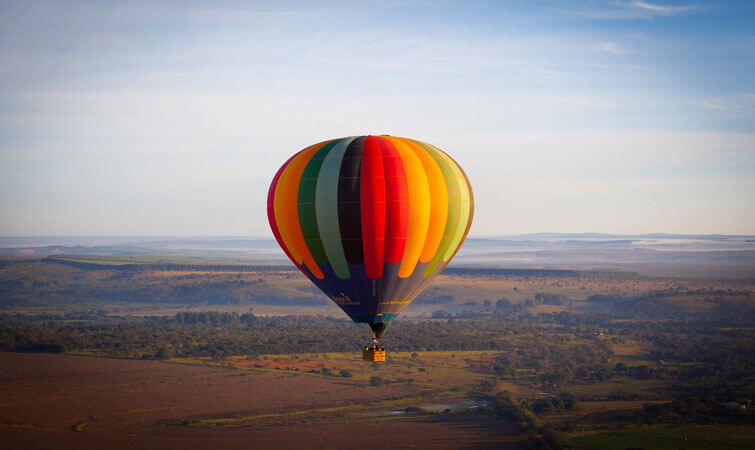
- Every tour operator must have a licence issued by DGCA to operate hot air balloon activity.
- If a pilot is a foreign national, then he must have a valid FATA issued by DGCA. Along with having a vast experience and knowledge, a pilot is also required to have a medical certificate endorsed by relevant Civil Aviation Authority.
- All the equipment, especially balloons must meet the standards for a safe and secure tour.
- All the balloons must be registered with DGCA and must display their registration number.
- Operators are required to carry schedule inspection. This inspection should be conducted before every flight.
- Along with that, a timely inspection should also be conducted.
- All the required documents should be maintained and kept onsite by the operators.
- Safety briefing should be given to all the clients.
- Flying permission must be taken by the Airport Authority of India for each area in which the operators are planning to operate.
Guidelines for Paragliding/Hang Gliding:
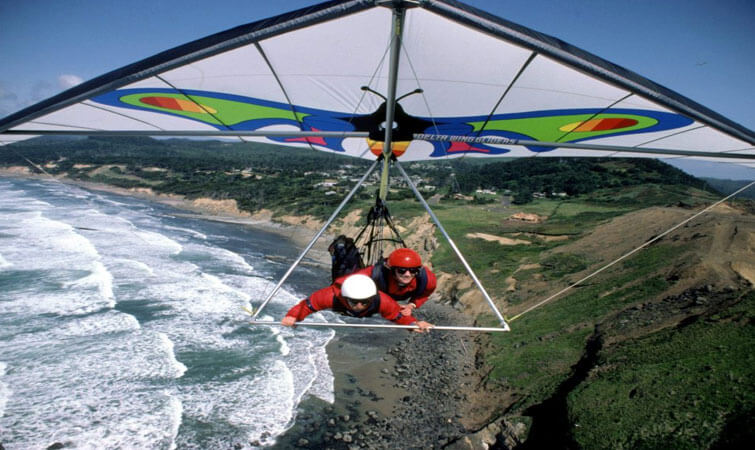
- All the pilots must have a P4 level training as a solo pilot along with 100 hours of solo flying and minimum 100 km xc flight. Tandem pilots must have undertaken a conversion course. Before turning into commercial flying, a pilot must have the experience of 50 non-commercial flights as a sports tandem pilot.
- For instructors, it is mandatory to have a P5 solo rating on FAI safe pro level. The instructor must also have 2 years of experience as a trainee instructor and a certificate from the accredited association.
- All the equipment are to be certified which include EN/SHV/DHV/AFNOR/ wing and parachute, harness, and helmet.
- All the equipment must be given a proper care and timely maintenance.
- Passengers should be clearly briefed about the basics of flight and risks involved.
- All the necessary documents should be kept on site that include pilot certification, equipment logbook, liability and pilot insurance, and emergency action plan.
Guidelines for Pata Motoring:
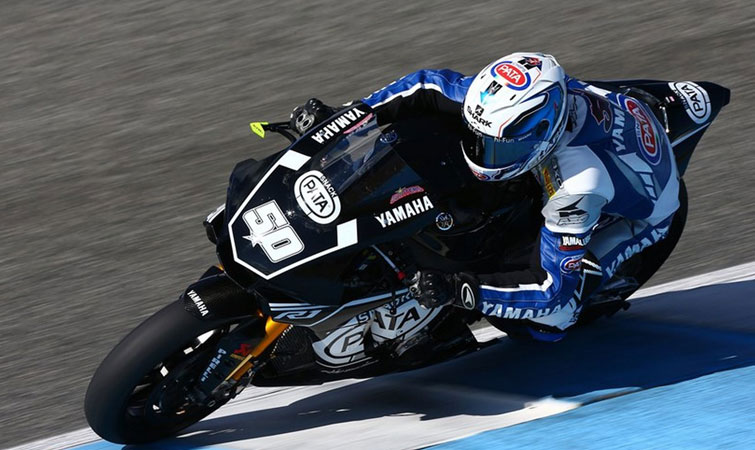
- Pata Motoring pilot must have P3 training level, a conversion course, and a minimum 300 hours on solo paramotors.
- Equipment like EN/SHV/DHV/AFNOR/ wing and parachute should be certified.
- Documents like pilot certification & logbooks, equipment logbook, service record, liability cover, and emergency action plan should be present onsite.
- All the passengers should be given a safety briefing before commencing the activity.
- Operators are required to verify the medical condition of all the passenger, and thus, no compromise to be made in case of any medical problem.
Guidelines for Parasailing:
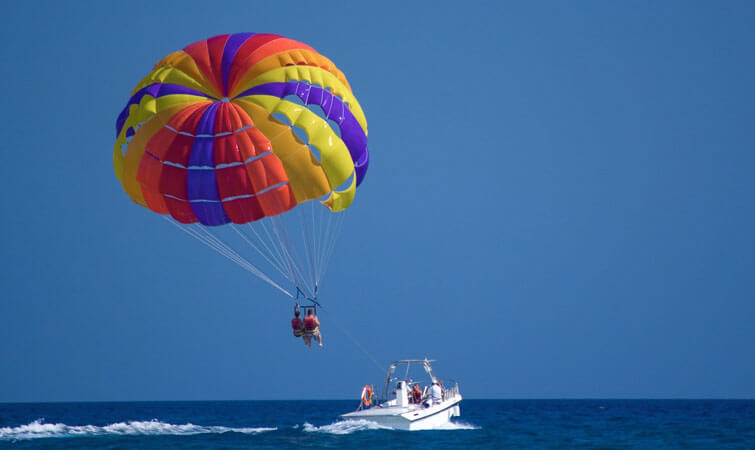
- Parasail drivers/instructors must have a vast experience and certification from a recognized National or International body. Moreover, all the pilots should also have valid FA/CPR certification.
- Parasail wings must have APCUL, DHV, CEN, or any certification recognized by FAI. The certification must be displayed on the wing for the inspection. Along with that, harnesses should also be certified.
- Equipment logbook, service record, liability cover, and emergency plan documents must be present onsite.
- A timely maintenance and care of equipment should be done. A logbook of all the equipment should also be kept onsite.
- All the necessary documents must also be present at the site.
- All instructors and guides are required to give a thorough brief of all the safety aspects.
- There should be a clear declaration by the operators about the medical conditions that are required for parasailing.
Guidelines for Skydiving:
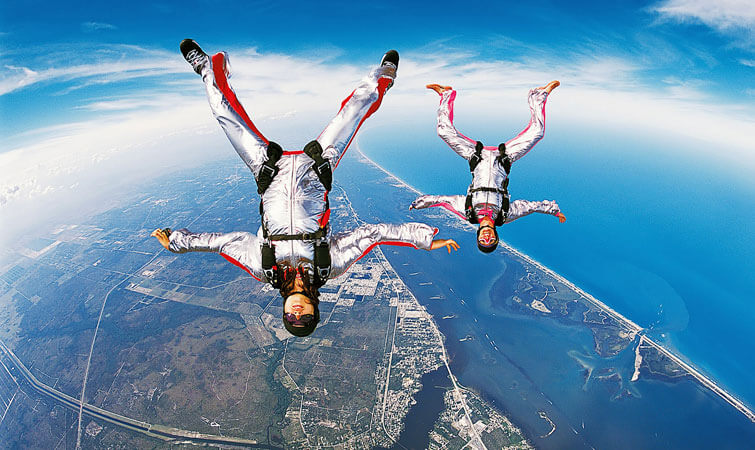
- For skydiving, a skydiver must be at least 18 years of age. However, a person above the age of 16 may jump with parent/guardian consent.
- Persons engaging in skydiving must attain the basic medical standards. They also need to carry physical fitness certificate from a registered physician.
- All the equipment should be properly maintained and duly checked.
- Special altitude equipment and supplementary oxygen must be available on the aircraft.
- All the administrative and operational documents must be present onsite.
Guidelines for Air Safari:
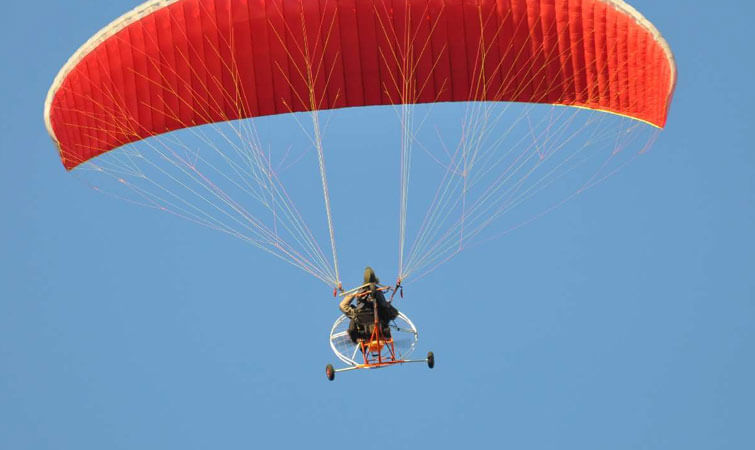
- All the guides and instructors must have basic minimum qualification and experience. MPL and GPS licences along with permits to fly powered hang-gliders are to be issued by DGCA.
- As per the laid down guidelines, the company must take the responsibility to maintain fly machines as per the requirements.
- A duly inspection and maintenance of microlight aircraft must be carried out by the company.
- Documents like registrations, security clearance, registration and import, and acquisition of microlight aircraft must be present onsite.
- Safety briefing to passengers about do’s and don’ts while flying is a must.
- The medical condition of all the passengers must be ascertained in advance by the company.
Guidelines for Kiteboarding:
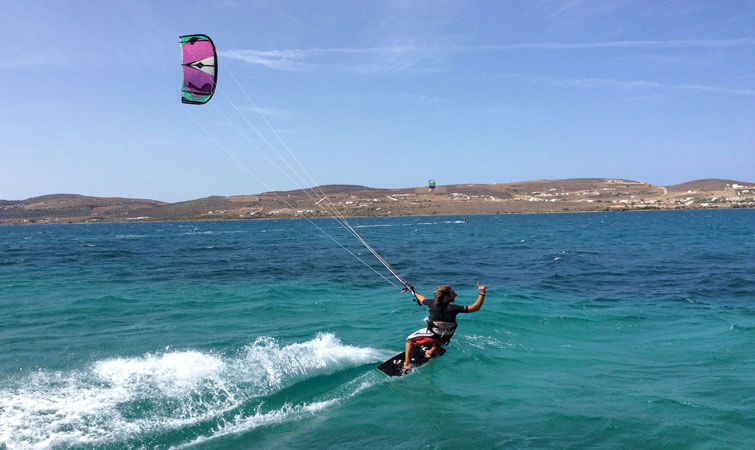
- Kiteboarding instructors must have a basic minimum qualification from a recognized national or international body for kiteboarding and the minimum 3 years of experience certificate. A guide or instructor must also be capable of teaching, assisting, leading trips and carrying out the rescue operations, if needed.
- Kiteboarder operators are required to maintain a file of documents like copies of all permits and permissions, details of instructors, copies of identification documents and emergency contact numbers of all the participants, a copy of SOP, and list of emergency numbers, onsite.
- Adequate first aid equipment must be available with the party.
- The instructor must ensure the medical condition of all the participants. He must also ensure whether the participant can swim in open water comfortably.
- Only quality equipment should be used to perform the activity.
- Qualified and experienced individuals must be appointed as instructors of guides.
Guidelines for Kayaking:
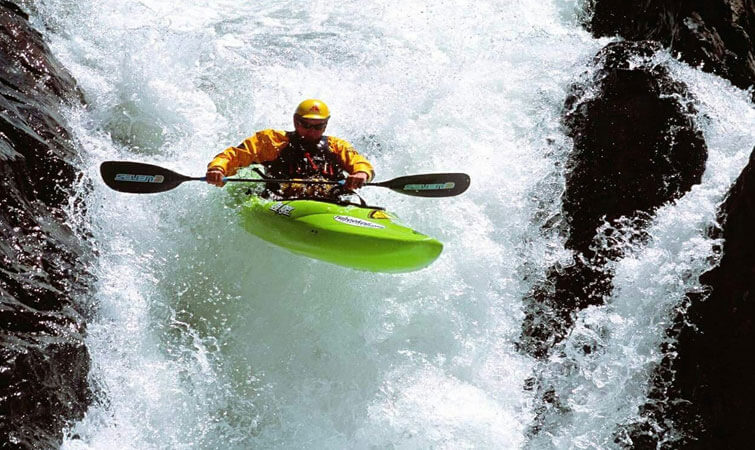
- Operators are required to start all the kayaking activities with a thorough safety brief.
- All the instructors must have a basic minimum experience and qualification. They must have a minimum 16 hours first aid certificate by the a recognized provider, qualification from a recognized national or international body. An instructor must also have minimum 2 years of assisting experience in the same activity.
- All the guides and instructors should have the ability to communicate clearly for a successful activity. Equipment used in Kayaking activity like kayaks, paddles, helmets, life jackets, must be of high quality. Moreover, the equipment should also receive a timely inspection and maintenance.
- As per the laid down guidelines, it is the responsibility of an adventure travel company to ensure that instructor to client ration should always remain 1:4.
- No kayaking activity should be undertaken without proper safety.
- The tour operators are required to keep a copy file of all the necessary documents onsite, like that of, information about all the guides and instructors, identification documents of participants and their emergency contact numbers, SOP, permits and permissions.
- Like all the water activity, safety briefing before commencing the activity is must.
- All the instructors and guides must verify and ascertain the medical condition of all participants.
Guidelines for River Rafting in India:
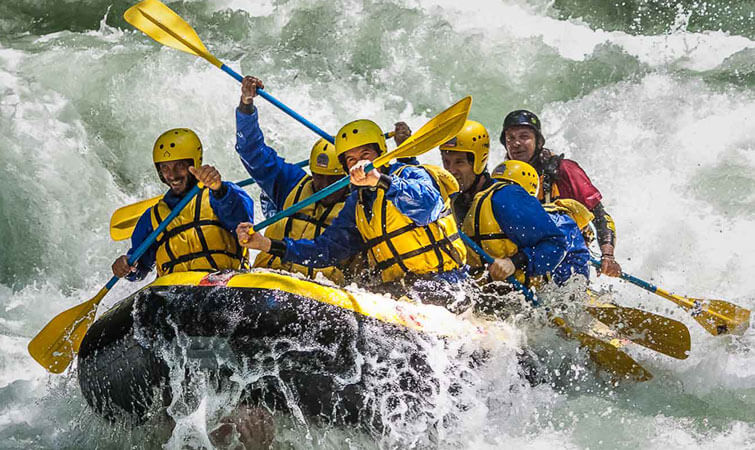
- Only skilled and experienced guides with a high level of rafting techniques, rescue life-saving techniques, first aid, and ability to communicate clearly are allowed to supervise the activity.
- All the guides are required to have a minimum 16 hours of first aid and CPR certification from a recognized national and international body. Along with that, a guide must have minimum 2 years of assisting experience. A WRT certification is must.
- A thorough safety brief is necessary to be given by the instructor or guide beforehand.
- No rafting activity should be undertaken without proper safety measures.
- People above the age of 14 are allowed to raft on all section of the river.
- Necessary documents and licence copies must be present onsite.
- A proper medical facility must be available with the rafting trips.
- Safety briefing prior to the activity is must.
Recommended Tours
Guidelines for River Cruising:
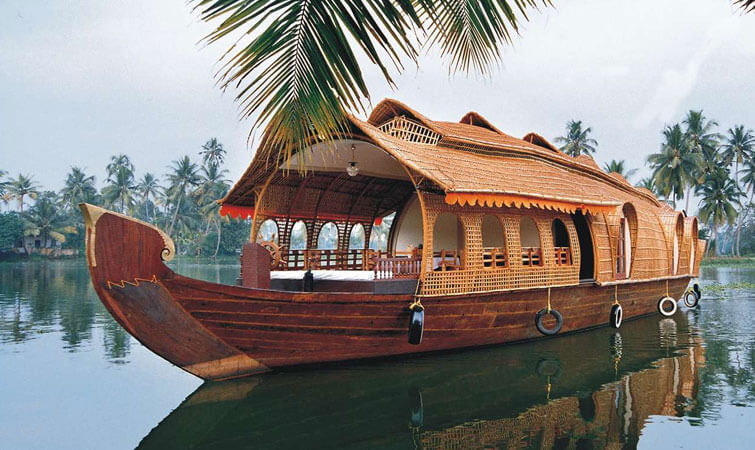
- Master of the ship must have a valid licence and a qualified rank of First Class Master. The ship also must have a qualified Second-Class Master, Licenced Engineer Driver, and Second-Class Engineer Operator.
- The ship is itself an equipment in this activity that must match marine shipbuilding laws of the country.
- There should be an annual inspection by the class certification society and state waterways authority to certify the ship.
- It is required to drydock the ship in every five years if it is operating in a freshwater or in two years if it is operating in saltwater.
- A comprehensive safety briefing should be done prior to the cruising.
- Facilities of both land ambulance and helicopters should be arranged in case of an evacuation.
Guidelines for Scuba Diving:
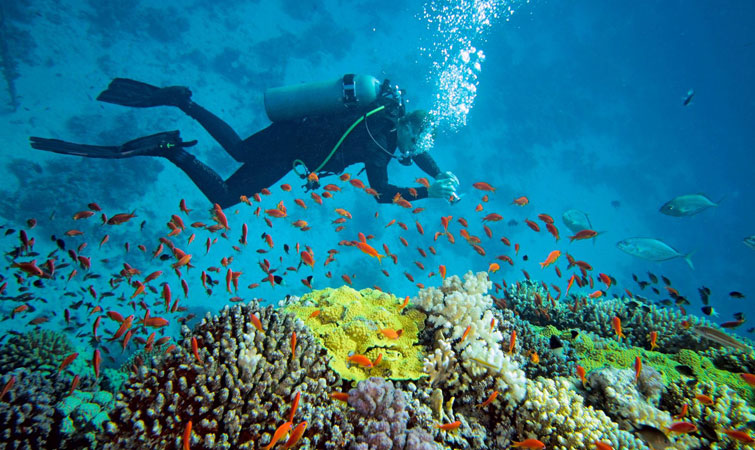
- Dive instructors and masters must have a basic minimum knowledge, experience, and qualification to make a scuba diving activity successful. He/she also must have a valid licence issued by a national or international scuba diving institute or association.
- It is mandatory for all the dive centers to register with the local tourist department. These center are also required to equipped pure emergency oxygen for any emergency or accident cases.
- All the divers should be provided with all the diving equipment and compressors.
- There should be a duly inspection and timely maintenance of all the equipment and compressors.
- All the centers offering scuba diving must have a dive boat which should be timely inspected and properly maintained.
- Each center must have a record of all the clients, i.e., full name, emergency contact number, contact information, and details of dives/courses they did. All the information must be kept for at least 7 years.
- Guides or instructors must make a comprehensive safety briefing prior to dive.
- As per the new guidelines, it must for all the centers to have an emergency action plan.
- Divers are required to provide a medical certificate to participate in the activity. No compromise to be made in case of any medical problem.
Guidelines for Snorkeling in India:
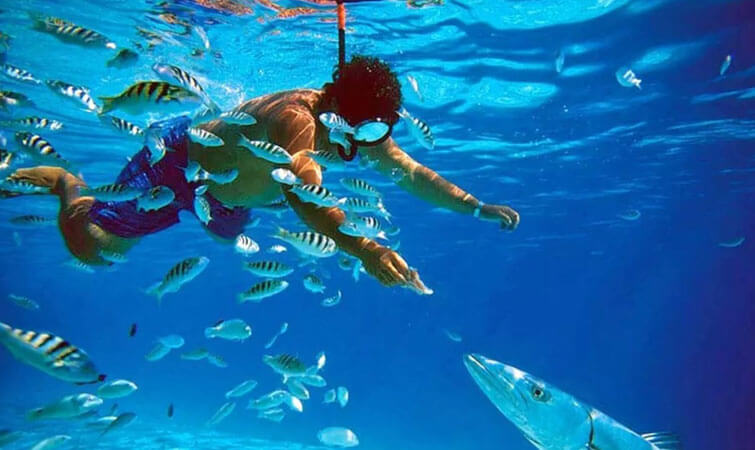
- Instructors and supervisors carrying out the snorkeling activity must have must have a basic minimum experience and knowledge.
- All the centers dealing with snorkelling activity need to be registered with the local tourism department.
- Each diver should be provided with a full set of equipment by the center.
- All the equipment must receive a timely inspection and maintenance.
- The new guidelines also stated that each center must have the basic information of all the divers and their emergency contact numbers. These documents must be kept for minimum 5 years.
- Safety briefing before starting the activity is must.
- Each swimmer should be briefly checked for medical and physical fitness by the center.
Guidelines for Water Sports Centers:
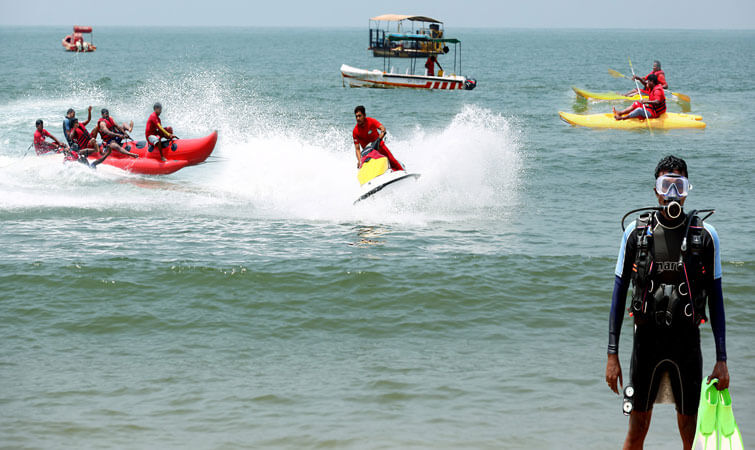
- All the water sports centers must hire a skilled and professional manpower to carry out water sports successfully.
- Each water sports center must have minimum 2 instructors to monitor activities. These instructors should be a strong swimmer, must have a minimum 16 hours first aid certificate by recognized national or international body (approved by ATOAI), and a certificate of qualification from a recognized national and international body for a particular activity.
- All the required equipment must be available on site and must also be given to the clients.
- A timely inspection and maintenance of the equipment is must.
- Prior to the activity, safety briefing should be given to all the clients.
- The water sports center must maintain necessary documents. These include information of all the clients and their emergency contact numbers, permits and permissions, emergency action plan, a copy of SOP, and all the certifications.
- In order to perform an activity, a participant must be physically and medically fit. It is the job of a center to ascertain the medical condition of every client.
 Published: 06 Jun, 2018By SiteManager
Published: 06 Jun, 2018By SiteManager
Popular Post
Category by Destinations
Recent Post
Enquiry Form
Get Customized Travel Quotes from Peak Adventure
Error: Contact form not found.


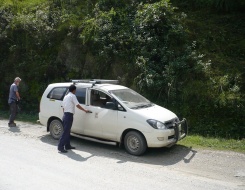
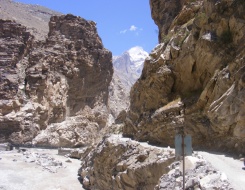
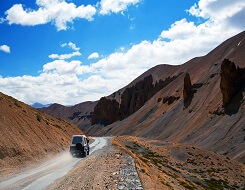
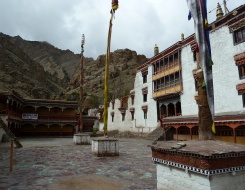
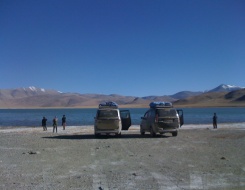
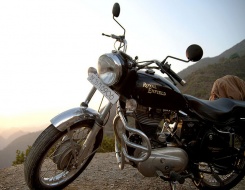

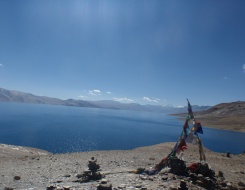
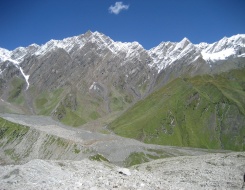
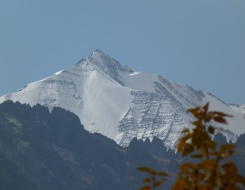
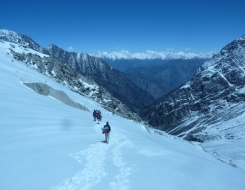

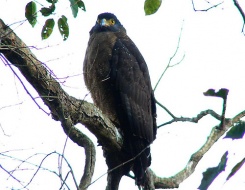




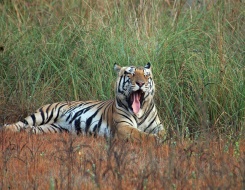

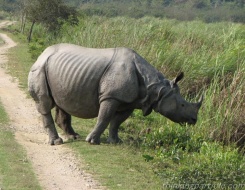
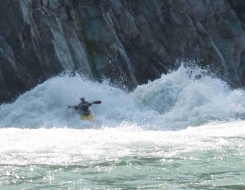
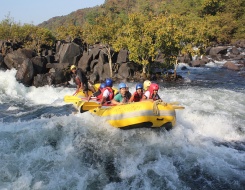
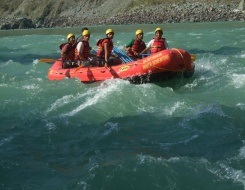
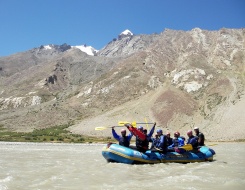


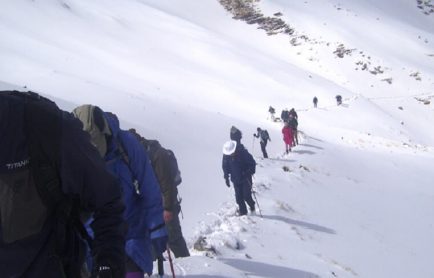
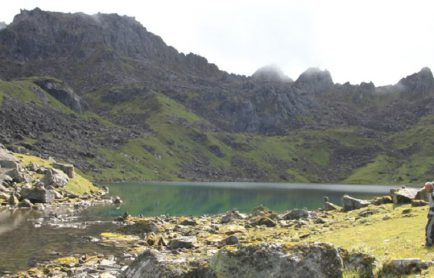

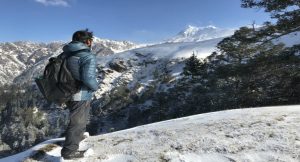
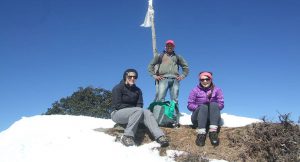
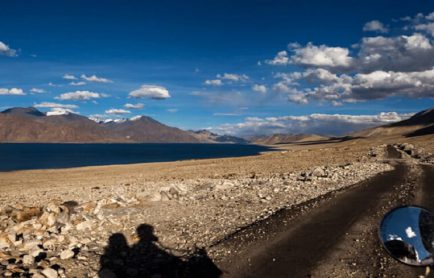
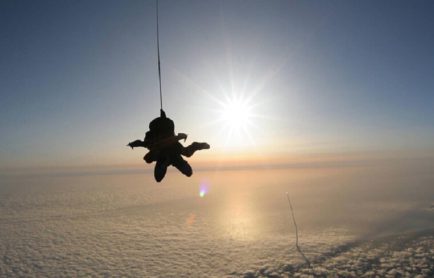
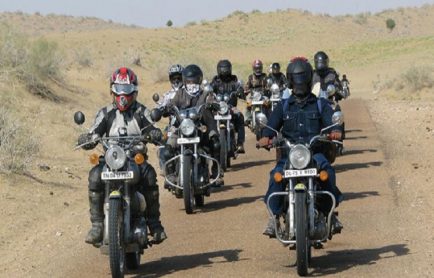

 +919212553108
+919212553108 +919212553108
+919212553108 +919212553109
+919212553109